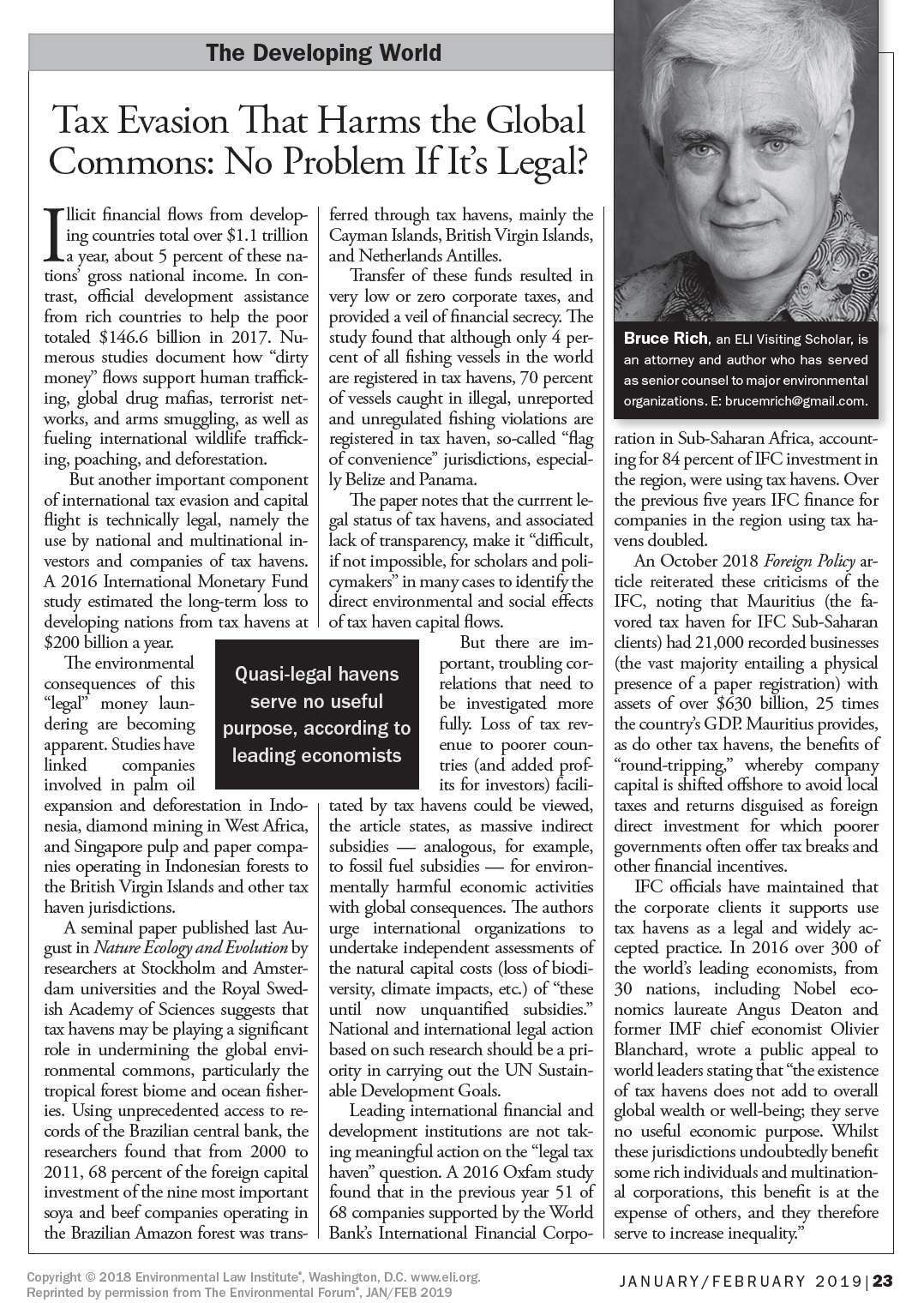- Bruce Rich
- Evironmental Forum
- January/February 2019
- P. 23
Ilicit financial flows from developing countries total over $1.1 trillion a year, about 5 percent of these nations’ gross national income. In contrast, official development assistance from rich countries to help the poor totaled $146.6 billion in 2017. Numerous studies document how “dirty money” flows support human trafficking, global drug mafias, terrorist networks, and arms smuggling, as well as fueling international wildlife trafficking, poaching, and deforestation. But another important component of international tax evasion and capital flight is technically legal, namely the use by national and multinational investors and companies of tax havens. A 2016 International Monetary Fund study estimated that the long term loss to developing nations from tax havens at $200 billion annually. A seminal paper published in August 2018 in Nature Ecology and Evolutionsuggests that tax havens may be playing a significant role in undermining the global environmental commons, particularly the tropical forest biome and ocean fisheries. Leading international financial and development institutions are not taking meaningful action on the “legal” tax haven question.



